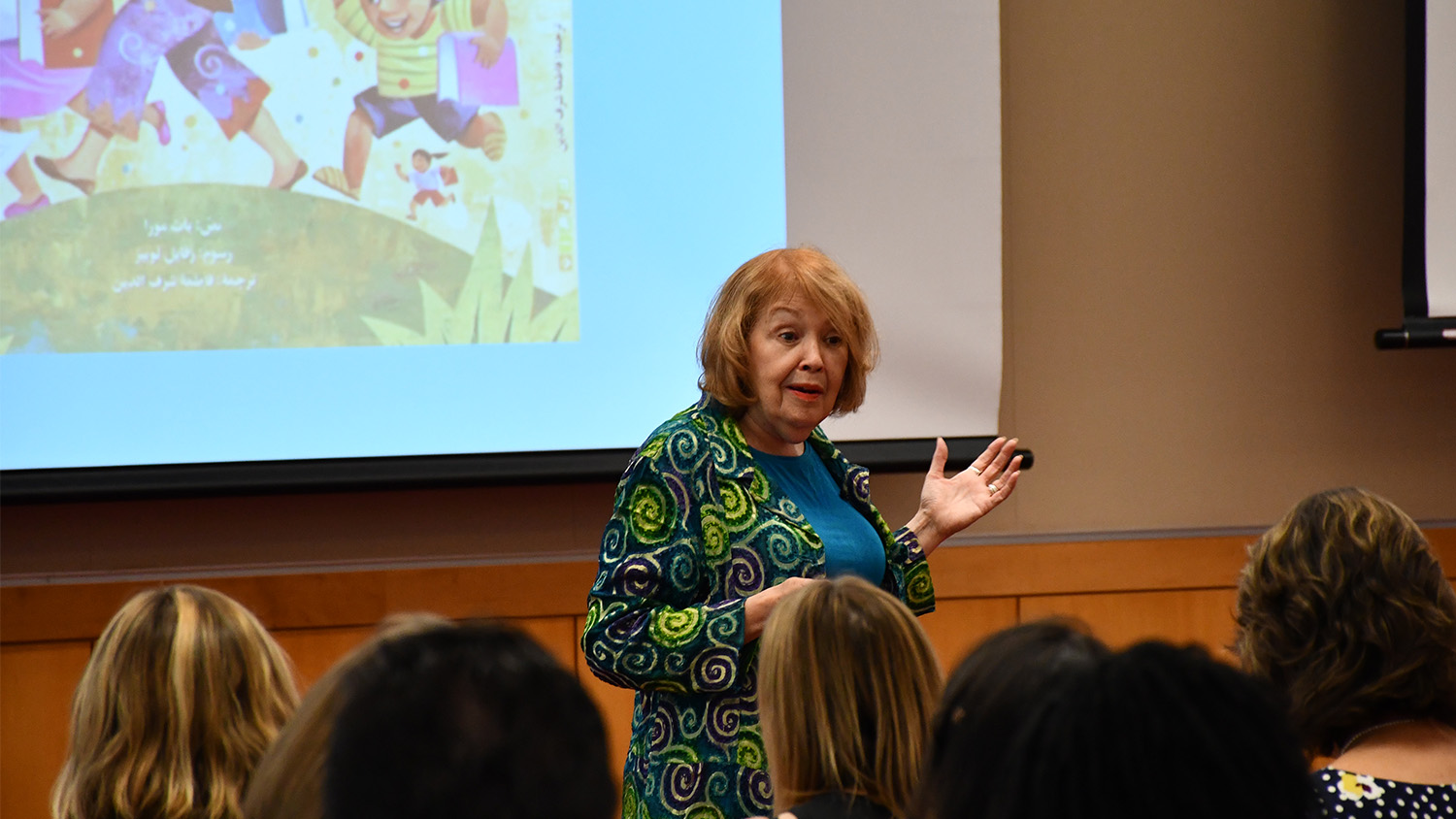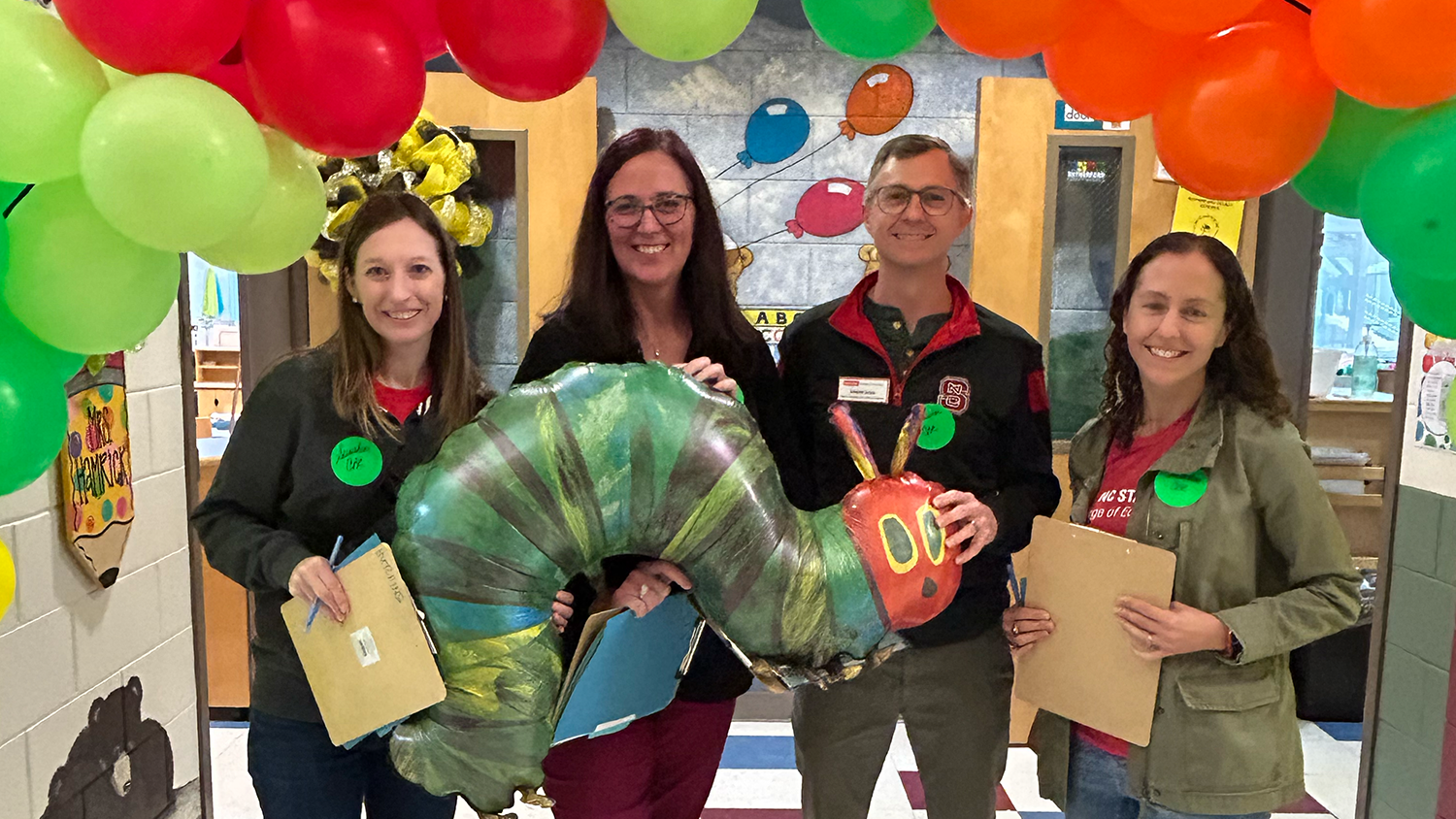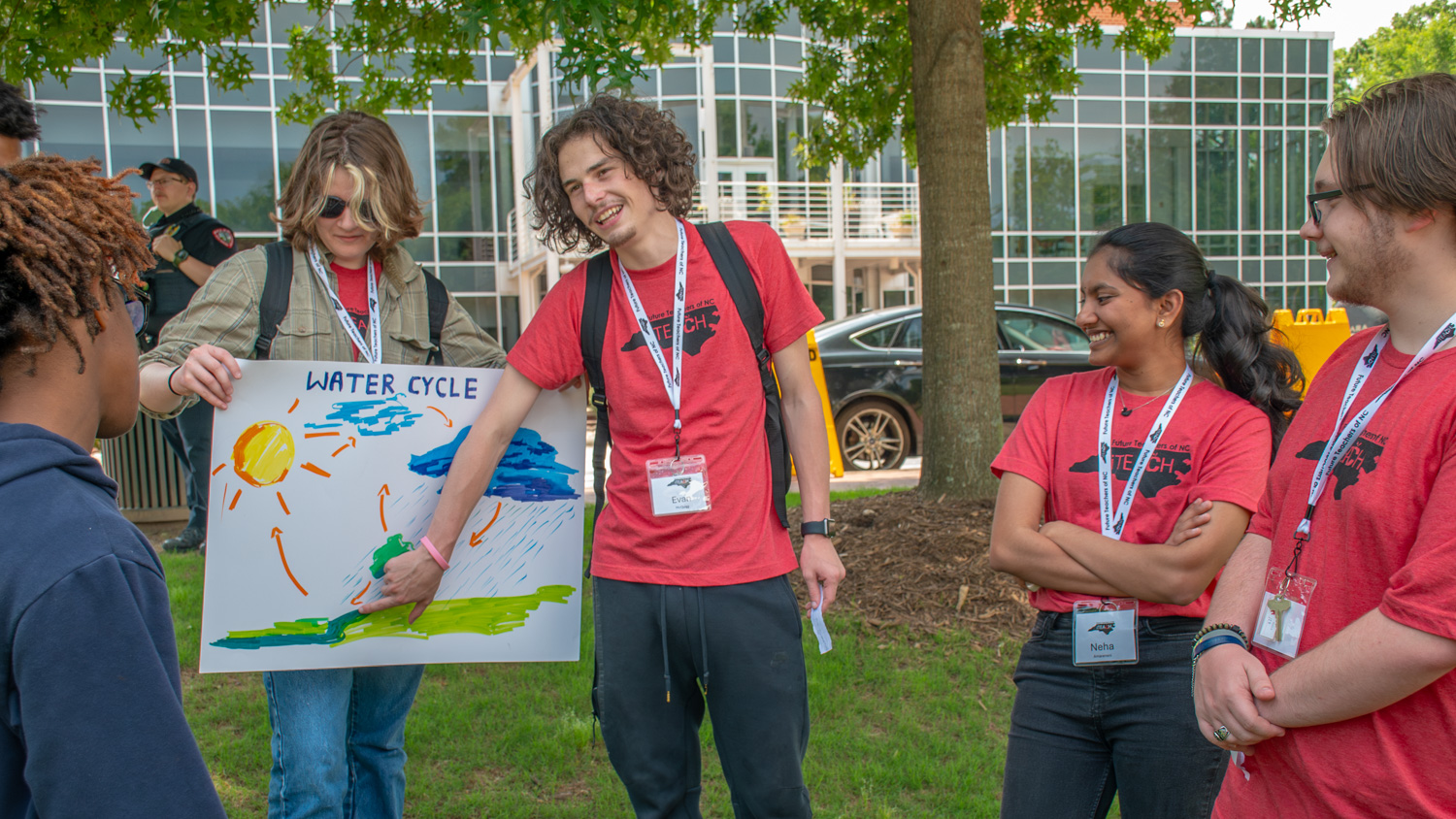Author, Poet and Literacy Advocate Pat Mora: Bookjoy is the Work of Teachers

Value your creative self. Enjoy quiet. Gather your materials. Begin your project. Revise. Share your creations. And steadily persist in your creative work.
These are the seven steps for writing and creativity that author and poet Pat Mora identifies in her writing memoir ZING! Seven Creativity Practices for Educators & Students. But these seven steps can also be applied to teaching, Mora said during a talk and book signing hosted by the NC State College of Education on Tuesday, Sept. 17. Really, she added, “these can apply to any work we do in life.”
Mora has applied those seven steps throughout her own career — from being a teacher and administrator to becoming a writer and literacy advocate.
She has published several collections of poetry for adults, young adults and children, as well as written many children’s books, a collection of essays and the highly acclaimed memoir House of Houses, which The Washington Post described as a “textual feast.” A literacy advocate, Mora also founded in 1996 the family literacy initiative, “El día de los niños/ El día de los libros, Children’s Day/Book Day,” which is celebrated each year on April 30. Poets & Writers magazine named her one of the “50 Most Inspiring Authors in the World” in 2010.
Mora, whom NC State recognized with an honorary doctorate in 2008, talked about Children’s Day/Book Day, as well as reading, writing and what makes effective educators during her talk at NC State Sept. 17. Below are excerpts from her talk, which have been edited for clarity and brevity.
On Zing
Zing is a great word. What I love about it is that it’s a word embedded with energy. When we think about teaching and teachers, I don’t know if we always think about energy. But I would argue that, regardless of personality, zing needs to be part of the work. It’s required given that kids — whom we care about so much — are bombarded by glamour and music and energy. How do we compete? I don’t think we compete by being overly quiet. That does not mean I’m suggesting rowdy teaching. I am talking about the internal energy that we bring to our work. How much zing can you bring to the work?
Think like a teacher…think of the best ones you’ve ever had and then think that way – Pat Mora, author, poet and founder of Children’s Day/Book Day. pic.twitter.com/C0ZbMYT4aG
— NC State College of Education (@NCStateCED) September 17, 2019
On Bookjoy
Bookjoy is the work we are trying to do [in teaching]. We are trying to motivate these cute young kids who have many distractions and who have many things they want in their lives — most of them maybe not having anything to do with books. And it’s our job to get them excited with books and excited about bookjoy. I would argue it’s some of the most important work that needs to be done in this country, especially right now, because the competition from the web is so intense. If we are going to excite young people about books — whether they are reading a book on the web or on paper — we need to be creative.
On Effective Educators
Write with your students. It’s really important that they see you write and that you are willing to share with them what you write. And my thought is that that doesn’t make you overly happy. You might say, “Well, I’m dull” or “I might set them a bad example” or “They’re probably better writers.” But you have to be willing to experience what you are asking them to do. It’s easy to say to a student, ”I want you to do this. I want you to do equations. I want you to practice football.” It’s easy to say it, but we have to be willing to do it ourselves, too.
It helps to be not only a reader but a diverse reader so you, yourself, can bring examples into your classroom. You are the solution for your students. Embed knowledge in your own life. It’s a big responsibility; it’s important work you’re doing; and I applaud you.
On Education as Public Service
I had the good fortune to interview [U.S. Supreme Court Associate Justice] Sonia Sotomayor recently. To prepare, I read her books. In My Beloved World, her memoir, she said two things that I thought were relevant [to educators]. When she decided to become a lawyer, she thought: “Think like a lawyer.” When she decided to turn paths and become a judge, she thought: “Think like a judge.” I’m here to say: “Think like a teacher. Think like an educator. Think of the best ones you’ve ever had. And then think that way.”
I was also moved by her commitment to public service. She could have made a fortune; and at a certain point she said, “I’m going to get off this and go into public service.” Educators — that is public service. You will think, “Am I on the right track?” It’s not a very glamorous world. But you are choosing public service because it’s for the good of the country, for the good of the community.
On Children’s Day/Book Day
I thought, “Why don’t we have a children’s day? We have Mother’s Say and Father’s Day; why don’t we have a Children’s Day?” And then I thought it’s got to be connected to books. It’s so essential for these young readers to be readers — not just that they can read but to be readers. For many of you that’s going to be your challenge: How do you excite them and meet them where they are so they will become readers? If you can do that, what a gift to them.
I feel so passionately about Children’s Day/Book Day because I feel [reading] has a lot to do with what we are going to become as a country. If everything comes to us from the media and we cannot form our own opinions and become critical readers, then a lot of the dreams for this country are going to be lost.
On Writing
I was a teacher, I was an administrator, and then at a certain point in my life I had the good fortune to have some time to write. One of the people who inspired me always told me: “Make some time for the writing.” When I started writing, I came up with a writing schedule for myself — something like every Saturday morning for two hours I was going to start working on my writing. You have to create a structure just like a sports team does. It is a huge blessing in my life that I have been able to do that, and it’s a privilege. And it’s certainly not because I’m a better writer than other people. It’s because I have had the time to devote to it.
You can’t be a writer and not be a reader. We need to read a lot to be writers.
- Categories:


